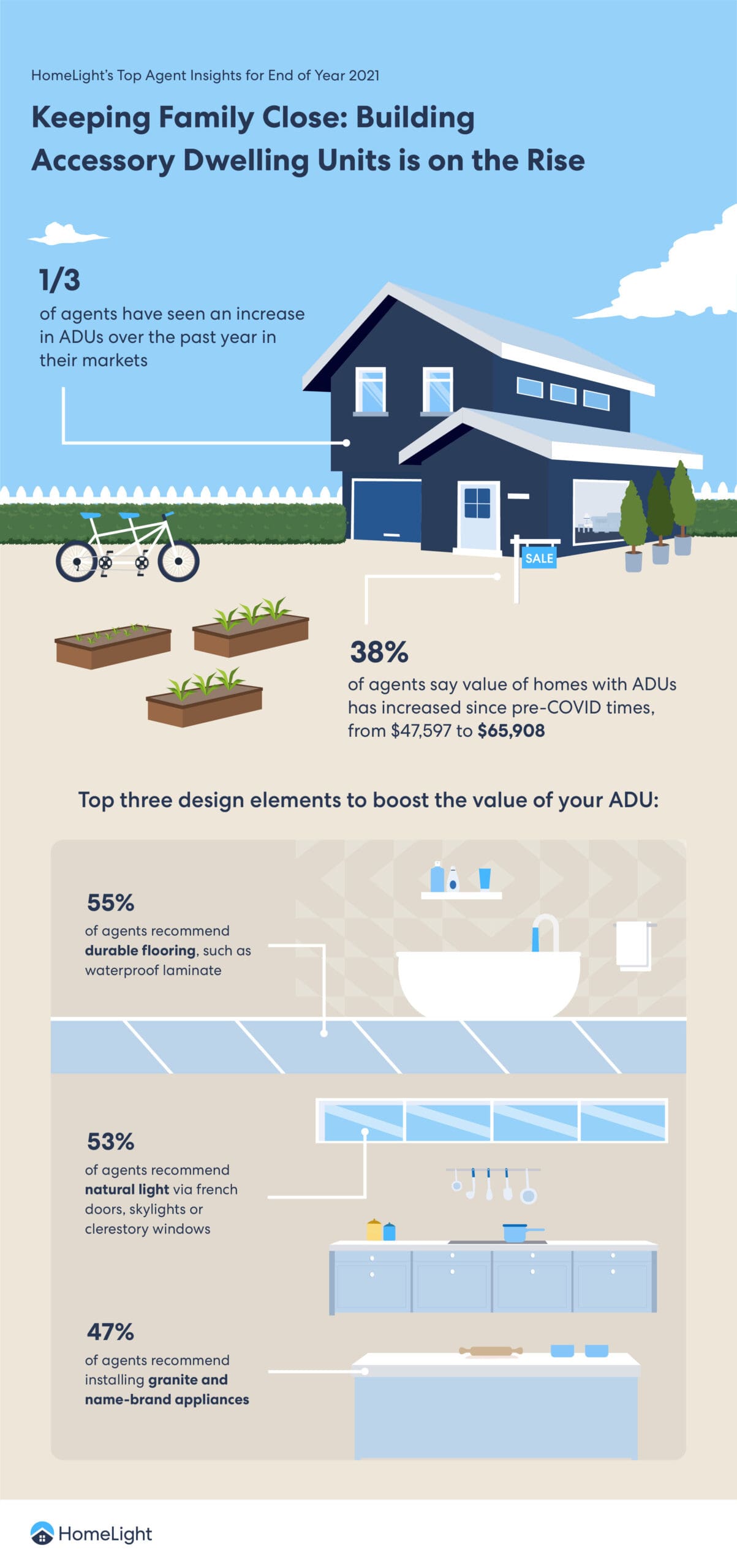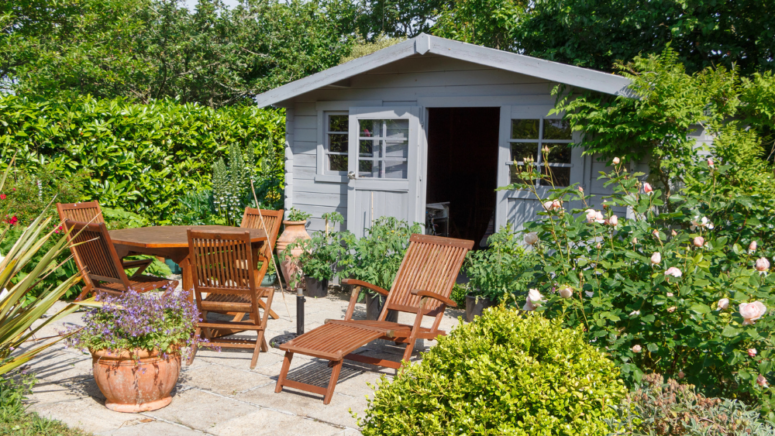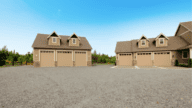How Much Value Does a Mother-in-Law Suite Add to Your Home?
- Published on
- 12 min read
-
 Julie Guthmann, Contributing AuthorClose
Julie Guthmann, Contributing AuthorClose Julie Guthmann Contributing Author
Julie Guthmann Contributing AuthorJulie Guthmann is an experienced writer and editor living in New Jersey. Her diverse background includes real estate, travel, healthcare, and other industries.
-
 Richard Haddad, Executive EditorClose
Richard Haddad, Executive EditorClose Richard Haddad Executive Editor
Richard Haddad Executive EditorRichard Haddad is the executive editor of HomeLight.com. He works with an experienced content team that oversees the company’s blog featuring in-depth articles about the home buying and selling process, homeownership news, home care and design tips, and related real estate trends. Previously, he served as an editor and content producer for World Company, Gannett, and Western News & Info, where he also served as news director and director of internet operations.
Perhaps you’re concerned about an older parent living alone or your recent college grad paying high rent while they’re just getting their career started. Maybe some rental income from short-term vacationers is appealing, or you’d like a new home gym or office.
Consider converting existing space in your house or constructing an addition to create a mother-in-law suite (also known as an accessory dwelling unit or “ADU”) that adds value to your home and generates rental income. Maybe your home already has an ADU and you’re curious, but either way you’d like to know: how much value does a mother-in-law suite add?
ADUs have been growing in popularity. Rising real estate prices have made ADUs more common in certain markets where affordable housing is difficult to find, while the pandemic created more interest in having extra space at home.
“We’ve seen record prices and some people are just getting priced out of homeownership or making decisions because of financing,” says Rick Ruiz, a top real estate agent in Southern Nevada. An ADU provides the solution when family members team up and purchase a house together.
A smaller, independent residential structure on the same lot as a single-family home qualifies as an ADU as long as it has a separate entrance, kitchen, and bathroom, according to Freddie Mac.
All types of ADUs have the same address as the main dwelling. An interior conversion transforms the basement, attic, or unused room into living space. The in-law suite can be attached to the main house such as a second story addition or apartment built on top of the garage. A detached ADU is usually located in the backyard and is a separate structure from the primary residence.

Does a mother-in-law suite add value to a home?
In large cities, homes with an ADU are priced 30%-35% higher on average than those without one. Numerous factors affect how much value a mother-in-law suite adds, so we talked with leading real estate agents and property appraisers about maximizing your home’s worth with an accessory apartment.
With added living space and multiple uses, it’s not surprising that the value of mother-in-law suites has increased nationally. But keep in mind that your property taxes could also rise if your home is reassessed for a higher amount.
Although an ADU can add square footage to your home’s resale value, your return on investment (ROI) may be too low to recover building costs. In the Pacific region, where in-law suites add the greatest value of $116,931, according to a HomeLight report, homeowners just about break even at 2% ROI. Nationwide, the $77,239 average cost of an ADU has an ROI of -15%.
Renting adds value and cuts costs
Adding a mother-in-law suite might not produce much ROI in terms of resale value, but that may not account for the potential income that an ADU can bring to a homeowner.
Skyrocketing housing costs, particularly high rents, and the rise of platforms such as Airbnb and Vrbo offer the opportunity for increased monthly cash flow to help pay the mortgage and, when it’s time to sell, attract prospective buyers. Another option for older homeowners downsizing their house or people buying their first property is to move into the accessory unit and rent out the main house.
Symbium, a provider of web applications for residential construction, estimates that property value will increase by 100 times the ADU’s monthly rent. If a comparable unit in your area rents for $1,000 per month, this rule of thumb suggests that the ADU adds $100,000 to your home’s worth. But check your local ordinances to confirm the allowed uses of an ADU.
Renting to strangers isn’t the only way to maximize your ADU’s value. Multi-generational living arrangements, by far the most common use of mother-in-law suites, can yield huge cost savings when parents, in-laws, or adult children contribute their fair share of rent to the homeowner’s mortgage.
In addition, nearby family members can help with childcare or reduce their own housing expenses.
ADU popularity eases appraisal process
While determining how much value a mother-in-law suite adds has historically been difficult due to the lack of appropriate comps, the growing popularity of ADUs is beginning to simplify the valuation process.
Accessory units can appraise for much more than the cost to construct them, depending on location, square footage, number of bedrooms and bathrooms, HVAC, age of the property, quality of the build, state of the real estate market, and comps.
For the most accurate appraisal, find an appraiser who has experience working with ADUs. Symbium’s blog explains that appraisers use a market-based or income-based approach.
The market-based method compares your ADU to similar units sold nearby within a six-month timeline. Appraisers use it primarily for mother-in-law suites inhabited by family or guests.
Appraisers utilize the income-based approach for ADUs that are rented. They determine the current value by using the present value of future income that the property will generate.
The appraiser looks at comparable rents in the area and the home’s condition to decide the amount of income the homeowner might receive.
Tom Horn, a longtime real estate appraiser in Birmingham, Alabama, recommends in his blog to build the type of ADU that is common in your area so you’ll have more buyers when it’s time to sell and a greater number of comparable properties for an accurate appraisal.
But in hot markets where accessory units are in short supply and sell at a premium, appraisals may even be waived. “In today’s environment, the appraisal either gets waived or you tend to see anywhere from a $20,000 to $40,000 appraisal gap guarantee,” says Ruiz.
Appraisers also consider whether zoning ordinances allow for ADUs and how the in-law suite impacts the property’s marketability or value. Fannie Mae provides details about what is included in the appraisal report for a property with an ADU.
Which ADU best meets your needs and budget?
Over one-third of agents surveyed by HomeLight say the most common type of ADU in their market is a detached structure. While detached units are preferred throughout much of the country, interior conversions are more typical in the Northeast and the Midwest regions.
When selecting the type of ADU, take into account the trends in your area, how the unit will be used, and your budget.
Turn existing space into an ADU
Offering the least amount of privacy, new construction is not required for an interior conversion, and the permit process is often simpler. Several ways to maximize existing space include:
Convert a garage
Expect to spend an average of $6,023 to $27,812 for a garage conversion depending on your garage’s size and where you live.
Your garage retrofit will require insulation, drywall, flooring, HVAC, and water heater, in addition to electrical service upgrades such as a gas line or a 220 outlet for the stove, according to HomeAdvisor.
The unit will also need a private entrance, at least one window for an emergency exit, full bathroom, and kitchenette.
Remodel the basement
Turning a basement into a functional in-law suite typically costs $30,000 to $60,000. While you can tap into the main home’s pipes and drains, installing a kitchen, bathroom, and walkout doors hike the price.
Upgrade an attic
An attic conversion is pricey because you’ll have to reinforce floor joists and install a safe stairway in addition to insulation, ventilation, plumbing, and electrical wiring. HomeAdvisor estimates the average cost of this project to range from $25,000 to $65,000.
Give an unused room a makeover
Convert a formal dining room or guest room that seldom gets used into an ADU for about $2 to $5 per square foot. This could involve installing a wall at an average cost of about $2,059. Building a bathroom adds up to $30,000 more.
Adding on for more space and privacy
If your home is short on space or you want more privacy, an addition might be a better option. Plan on spending about $100 to $200 per square foot for materials and labor.
Costs vary depending on the size of your unit and design choices, starting at $40,000 for a small 400-square-foot suite. The maximum size allowed by many municipalities is 750 square feet, but comes with a hefty price tag of $75,000 to $150,000, according to Angi.
Adding on to your home requires everything from wall support beams to new floors as well as bathroom plumbing and fixtures. Drywall, insulation, painting, windows, doors, and siding will increase the expense. Since you’ll need the services of several professionals, including an architect, plumber, and electrician, you might want to hire a general contractor to oversee the project for 10% to 20% of the total cost.
Ruiz has seen a growing trend in Las Vegas for a full-blown “next-gen” attached in-law suite that has a bedroom, living room, bathroom, and complete kitchen.
Construct a detached ADU for independence and privacy
Offering the most privacy and personal space, a unit separate from the main house is ideal for short-term vacation rentals and long-term tenants. A detached ADU also offers more independence for family members living there.
Since new construction is required, this type of residence takes additional money and time to build and to obtain permits. You’ll need to install a water heater and an electric meter if the occupants will pay their own utilities. But this larger sized unit can bring in higher rental income to offset increased costs. In hot markets, a detached unit may give the homeowner as much as a 200% return on investment.
No matter what type of ADU you choose, be sure to factor in expenditures for fixtures and appliances as well as furniture if you plan to use it as a short-term rental.
Design elements and amenities that add value
The small size of an ADU makes certain details stand out while enhancing liveability and potential rental income. When planning your mother-in-law suite, include features that will increase resale value or how much rent you can charge.
According to HomeLight data, the top three design elements adding greatest value are durable flooring such as waterproof laminate; natural light provided by French doors, skylights, and clerestory windows; and use of high-end materials like granite and name-brand appliances.
A private entrance is the most important amenity in an ADU that will boost resale value or rental income followed by air conditioning and an in-unit washer and dryer.
Proximity near the city center is the location factor ranked highest for increasing an ADU’s value, according to 60% of agents surveyed by HomeLight. Being near a college campus or body of water will also make an accessory unit more valuable.
If it’s not permitted and considered legal square footage, you’ve got a gap between what it’s worth versus what it will appraise for.
 Rick Ruiz Real Estate AgentClose
Rick Ruiz Real Estate AgentClose Rick Ruiz Real Estate Agent at GK Properties
Rick Ruiz Real Estate Agent at GK Properties
- Years of Experience 23
- Transactions 1297
- Average Price Point $252k
- Single Family Homes 1079
Keep it legal
The need for affordable housing prompted states such as California and Oregon to pass legislation reducing regulations for permits and construction of ADUs. New Hampshire, Vermont, and Washington enacted laws allowing ADUs. Although ADUs can be built in more communities, zoning ordinances vary.
Ruiz emphasizes the importance of getting the proper permits so you don’t face obstacles when it’s time to sell. “If it’s not permitted and considered legal square footage, you’ve got a gap between what it’s worth versus what it will appraise for,” he cautions.
Follow these guidelines to ensure your ADU complies with the laws where you live:
- Check with your local planning or zoning department to learn about necessary permits and fees as well as regulations about occupancy numbers, type or size of unit, parking, and whether the owner must live on the property.
- Consult with a licensed contractor about local building codes setting minimum requirements for square footage, utilities, and fire safety.
- Read about the rules in your area for creating ADUs in the Accessory Dwellings guide.
- Contact your homeowner’s association (HOA) for requirements to build an addition or convert existing space as well as restrictions for renting out your ADU.
Financing options for your ADU
Unless you’ve got a pile of cash hidden under your mattress, you’ll need to explore ways to finance your mother-in-law suite.
- A home equity line of credit uses your home as collateral so you can borrow up to 80% or 90% of your property’s value and pay interest only on the amount withdrawn.
- With a cash-out refinance of your existing mortgage, you can borrow more than you owe and use the cash difference to pay for your in-law suite.
- A renovation loan bases the appraisal on the property’s value after it’s renovated, but has higher closing costs and interest rates than typical refinancing.
- Take out a loan against your retirement account.
- Obtain a personal line of credit if you don’t have enough equity for a loan secured by your home.
- Refinance after building the ADU to consolidate debt and possibly take advantage of lower interest rates.
Look beyond the dollars to calculate value
Whether you require extra living space for a family member or for personal use, a mother-in-law suite can add value by increasing your home’s selling price and providing a source of rental income. Evaluate how your ADU will be utilized and the impact on your privacy and lifestyle as well as your budget and local zoning ordinances to determine the best type of accessory unit for your needs.
HomeLight can connect you with a top real estate agent who is knowledgeable about ADU trends in your area and can help price and market your home to maximize resale value.
When calculating how much value a mother-in-law suite adds, don’t overlook the value that can’t be measured — the peace of mind that comes with knowing older parents are close by in case of emergency or that young children are in capable hands.
Header Image Source: (oceane2508 / Depositphotos)
- "Should I Add an ADU to My Home?," Freddie Mac (February 2024)
- "Is an ADU a good investment?," Renofi, Richard Garner (May 2023)
- "Should You Invest in Building an ADU in San Diego?," Snap ADU (July 2024)
- "How Much Value Does an ADU Add?," Architects LA (January 2021)
- "The Role of ADUs in Easing America's Housing Crisis," Governing, Emily Hamilton (April 2023)




